THE GRAND BUDAPEST HOTEL. Wes Anderson’s masterpiece
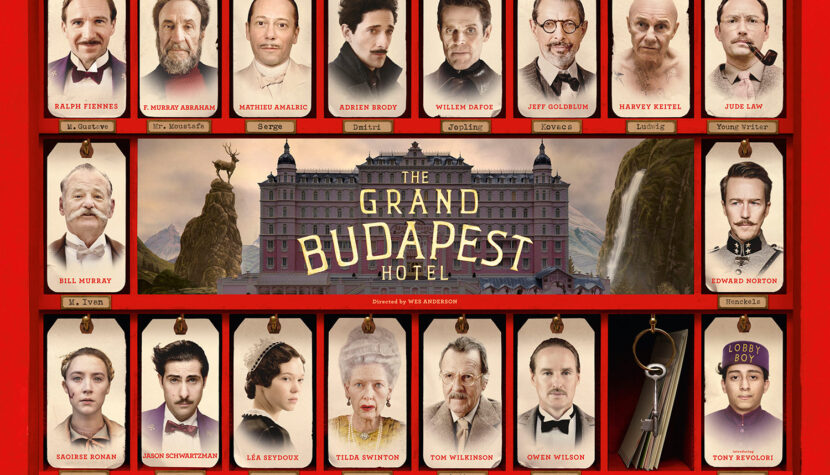
When one writes about films for a long enough time, the tools that make it easier to create subsequent texts start to appear in the reviewer’s toolkit. It’s not as difficult as it was at the beginning of the journey when compartments and other nooks and crannies were empty. However, each of us has been to school and knows that even the best-equipped pencil case cannot guarantee success.
Situations vary. In the case of The Grand Budapest Hotel, the tools don’t seem to be of much use because Wes Anderson takes on the role of a stronger kid who approaches the desk and knocks the pencil case onto the floor. Amidst broken pencils, worn-out erasers, and pens smeared with ink, this magical way of writing about cinema is dying. One might think that such a situation is a problem. Nothing could be further from the truth. This tool dislodgement, leaving one helpless, somewhat disoriented, and bewildered, is due to a simple fact – Anderson has created a masterpiece, the uniqueness of which even the sharpest pencil cannot capture.
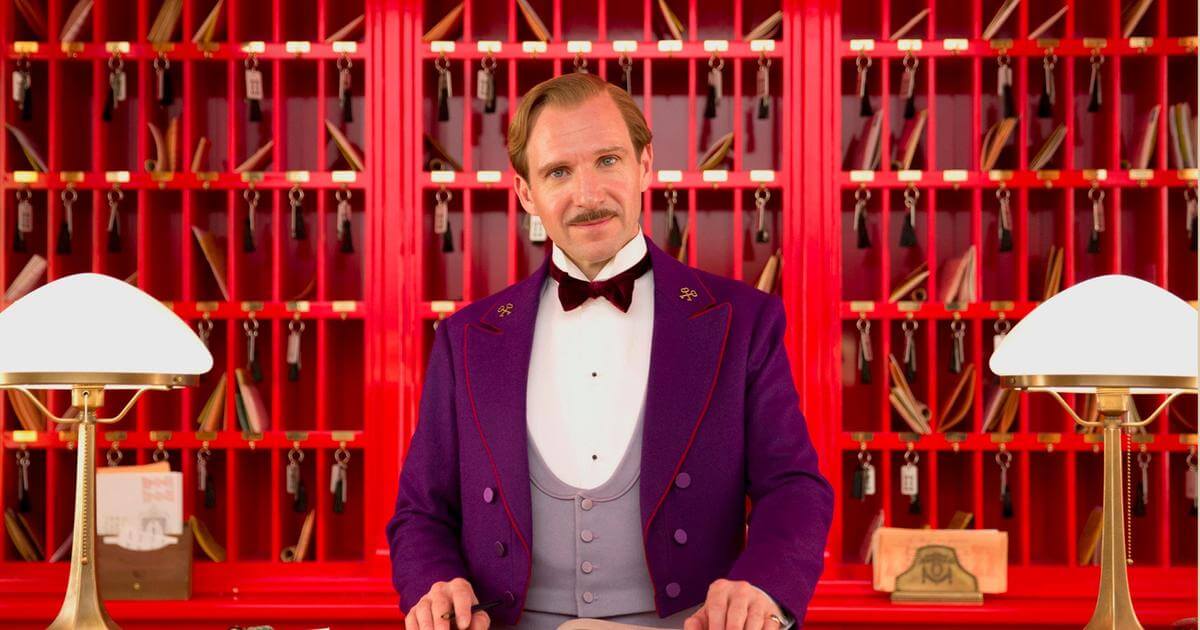
Watching The Grand Budapest Hotel, there are moments when you get the impression that the world created by the director is, like old-fashioned toys, wound up with a key. It’s like a dollhouse – an object that is most often seen today in museums preserving the childhood dreams of past decades. In this particular case, the creator’s abilities are simply astonishing. The Grand Budapest Hotel consists of thousands, if not millions, of cogs and gears that fall into place with a precision that exceeds the understanding of even the best watchmaker. Every, even the smallest detail, is meticulously crafted to the utmost. The viewer gazes at it all like a child who, among the moving elements of a holiday shop window, sees the toy of their dreams – wide-open mouth, shining eyes, face pressed against the glass with the hope of breaking through the pane and entering the extraordinary world that beckons from beyond its surface.
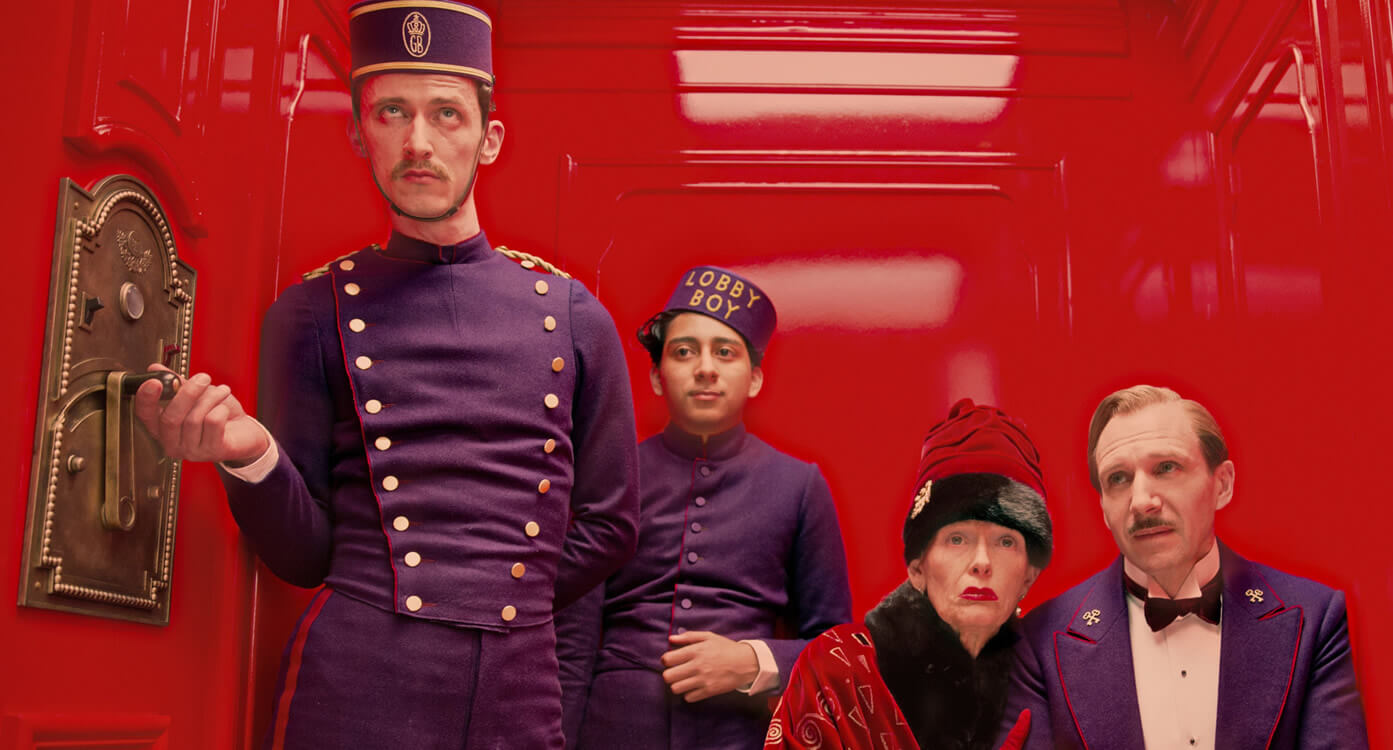
The sense of uniqueness is, of course, amplified by the cast. Just when we are convinced that the appearance of another familiar face cannot surprise us, Anderson immediately proves us wrong. One moment, we’re smiling at the thought of Tilda Swinton romancing the hotel concierge, and the next moment, we burst into laughter at the sight of a half-naked Harvey Keitel displaying tattoos resembling doodles from the margins of elementary school notebooks. In The Grand Budapest Hotel, no role feels out of place. There’s no sense that the cast, which could be divided among a dozen Hollywood blockbusters, was assembled haphazardly for the delight of promotional materials’ graphic designers. Quite the opposite, it seems that the actors are having a great time, and it’s impossible to imagine anyone else in their roles. Saoirse Ronan with a birthmark shaped like Mexico, the self-ironic Dafoe playing a Nazi thug, Adrien Brody as the uncouth head of the Desgoffe-und-Taxis family, Edward Norton as the overly polite local police officer – they all fit perfectly, and if we were to list all the perfectly chosen roles, the paragraph would have to be at least twice as long.
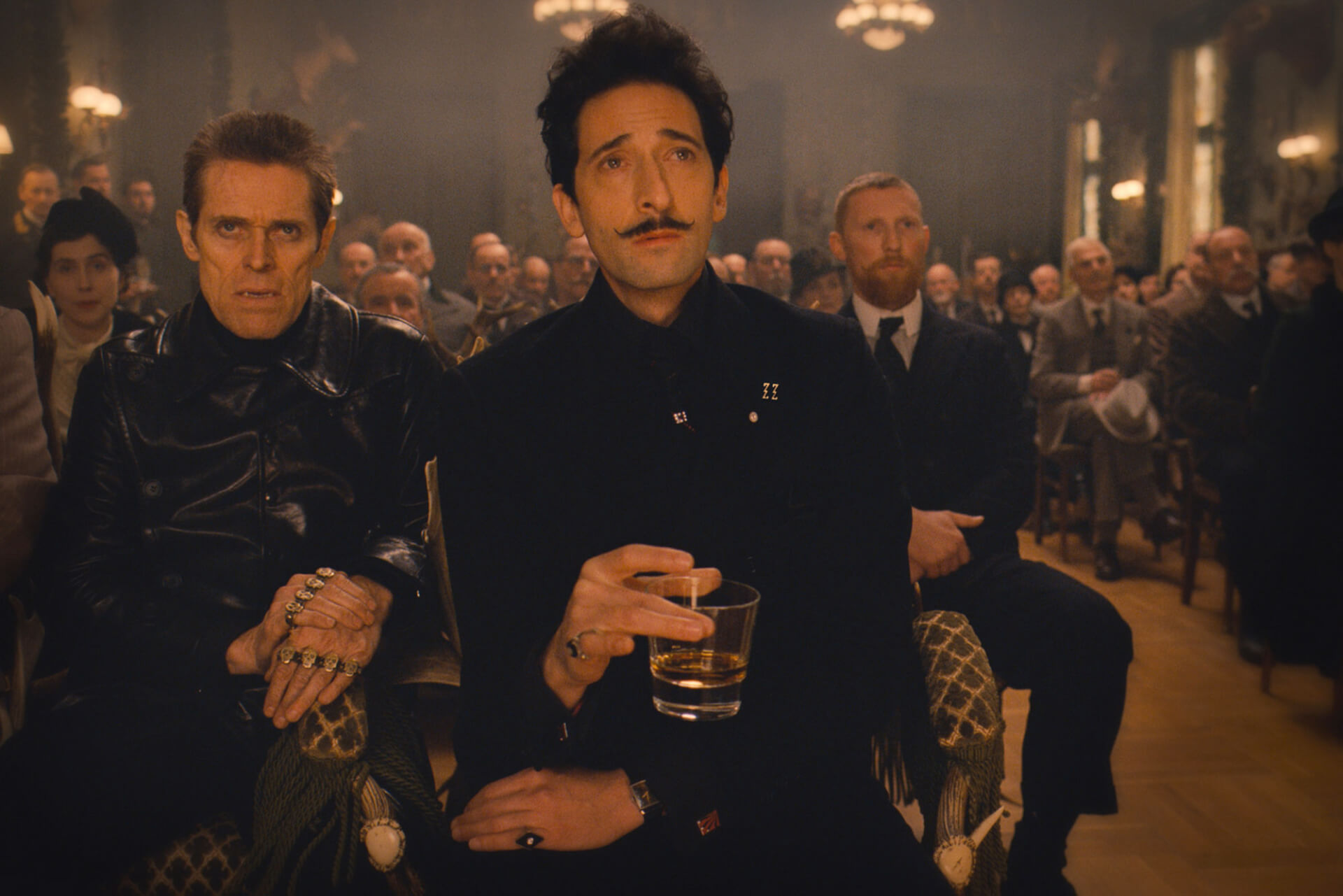
Of course, Ralph Fiennes takes the lead, feeling right at home in Anderson’s world. Tony Revolori, previously known mainly from television screens (Shameless, My Name is Earl, Entourage), is not far behind. He deserves special applause for his performance as Zero Moustafa, as it’s no small feat to shine in the company of such a select ensemble. Concierge Gustave and lobby boy Zero are a truly Andersonian duo in the best sense of the word.
The Grand Budapest Hotel is not only about the acting and the craftsmanship displayed in creating the film’s world. It’s primarily an excellent story that touches the viewer on multiple levels. There’s an engaging crime subplot that keeps the audience captivated from start to finish. The portraits of the main characters are drawn in a way that at times, you feel like you’re dealing with a smart drama. However, there’s no time to be weighed down by the gravity of some reflections because The Grand Budapest Hotel is almost constantly funny – through the characters’ behavior, plot twists, and situational humor. In the end, Anderson’s film is also moving. By functioning superbly on so many levels, it makes the viewer realize they are witnessing a complete work that triggers a full spectrum of – sometimes conflicting – emotions.
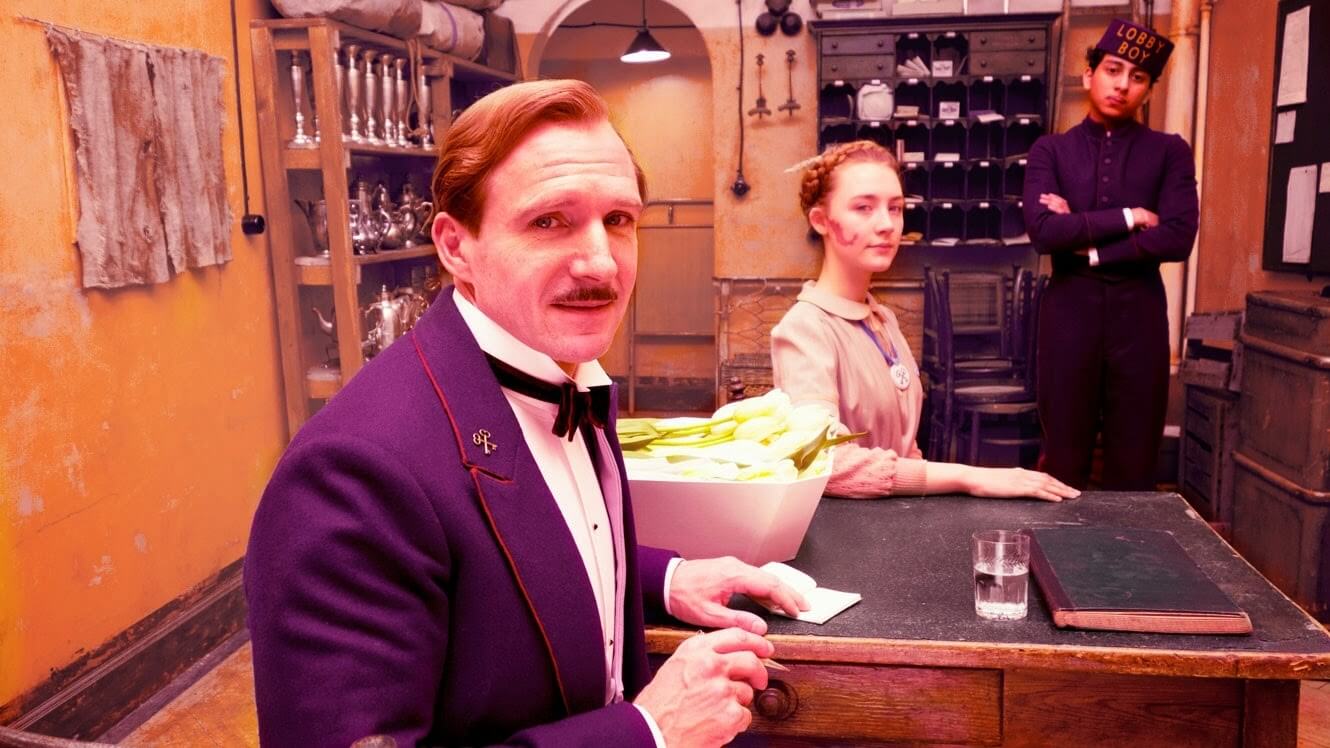
Ultimately, Anderson’s film is a nostalgic look back at times that are irretrievably gone. They were killed by World War II, although even before that, they were slowly fading away (Zero, who narrates Gustave’s story, repeatedly emphasizes that his concierge desperately tried to keep the departing era alive). The Grand Budapest Hotel tells of a pivotal moment – a time when the world of countesses in Parisian gowns, gentlemen who wore more perfume than ladies, and aristocracy residing in opulent alpine residences was brought to its knees by the barrel of a Nazi rifle. Those who have read Thomas Mann’s The Magic Mountain will find the atmosphere in the walls of the Grand Budapest Hotel reminiscent of the Davos sanatorium.
In the context of Wes Anderson’s filmography, a fellow editor (Rafal Oswiecinski) once said, “In the world of comedy, there was Chaplin, the Marx Brothers, Jacques Tati, and the ZAZ trio. Now it’s Wes Anderson’s time.” It’s only fitting to nod in agreement. I am completely convinced that decades from now, in all sorts of film histories, Anderson’s name will be written in capital letters. The Grand Budapest Hotel once again proves to us that he is a creator of the highest caliber.

